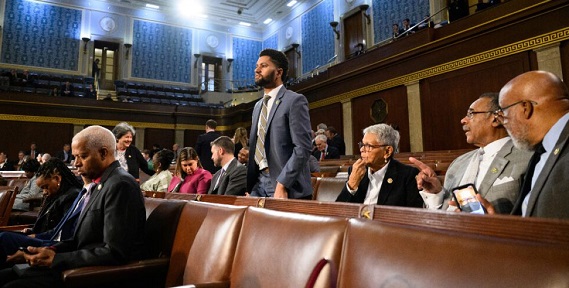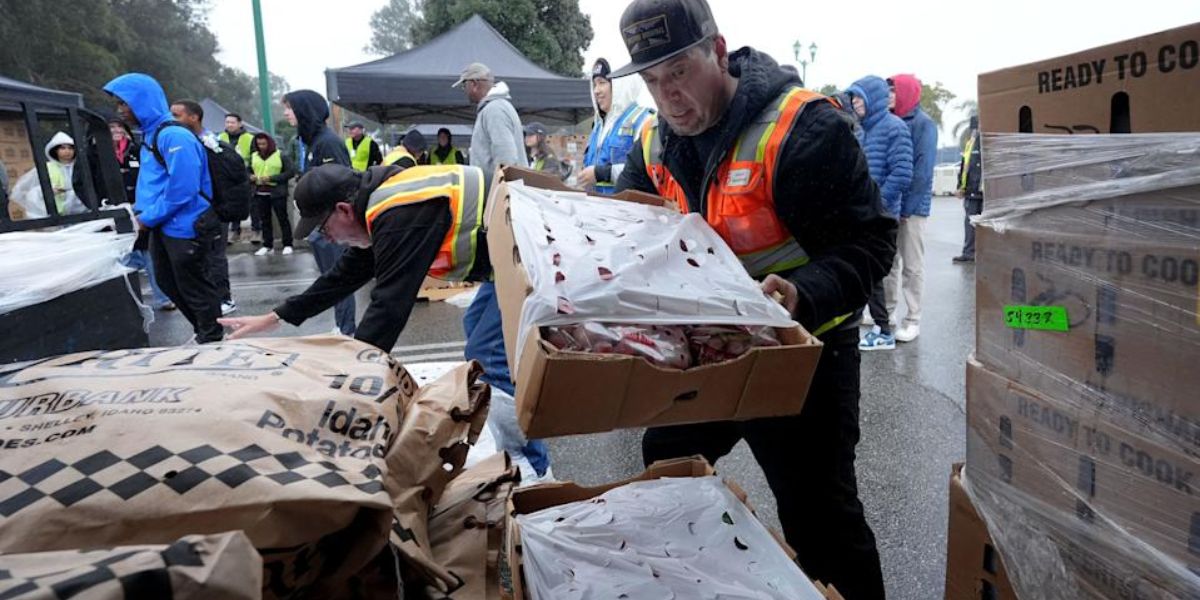Florida Congressman Maxwell Alejandro Frost has strongly criticized a recent Supreme Court decision that impacts the treatment of homelessness as “cruel and unusual punishment.” Frost’s remarks came in response to the court’s ruling that permits local governments to prosecute individuals sleeping in public spaces if shelter options are available. This decision has sparked nationwide debate over the rights of homeless individuals and the application of constitutional protections.
The ruling, which emerged from a case in Boise, Idaho, revolves around whether it is constitutional to penalize homeless individuals for sleeping outdoors when there is inadequate shelter space available. Frost, known for his advocacy on housing issues, argues that the decision sets a dangerous precedent by criminalizing homelessness rather than addressing its underlying causes. According to Frost, “It’s appalling that the highest court in the land would condone such punitive measures against vulnerable populations.”
The issue has drawn attention from advocacy groups and legal experts nationwide, who argue that homelessness should be approached with compassion and comprehensive solutions rather than punitive measures. Many have pointed out that homelessness often results from systemic issues such as lack of affordable housing, mental health challenges, and economic inequality.
Critics of the Supreme Court’s decision fear that it could exacerbate homelessness by pushing individuals into the criminal justice system rather than providing supportive services. Frost emphasized the need for legislative action to protect the rights and dignity of homeless individuals, urging Congress to consider measures that address root causes and provide adequate support systems.
In response to the ruling, local governments across the country are evaluating their policies regarding homelessness and considering alternative approaches to address the issue. Advocates continue to push for policies that prioritize housing stability and support services as essential components of addressing homelessness effectively.
Frost’s condemnation of the Supreme Court’s decision underscores ongoing tensions between legal interpretations of public space use and the human rights of vulnerable populations. His advocacy reflects broader concerns about the intersection of constitutional rights and social policy, particularly regarding issues of poverty and housing instability.
Also Read:
- Pritzker Signs New Illinois Legislation to Boost Nonprofit Funding Opportunities
- Gavin Newsom Emphasizes His Support for President Biden, Avoiding Speculation on Replacing Him
As discussions continue at both the federal and local levels, the implications of this decision are likely to shape future debates on homelessness policy and constitutional protections. Advocates, lawmakers, and community leaders are poised to engage in further dialogue and action to address the complex challenges facing homeless individuals across the nation.




